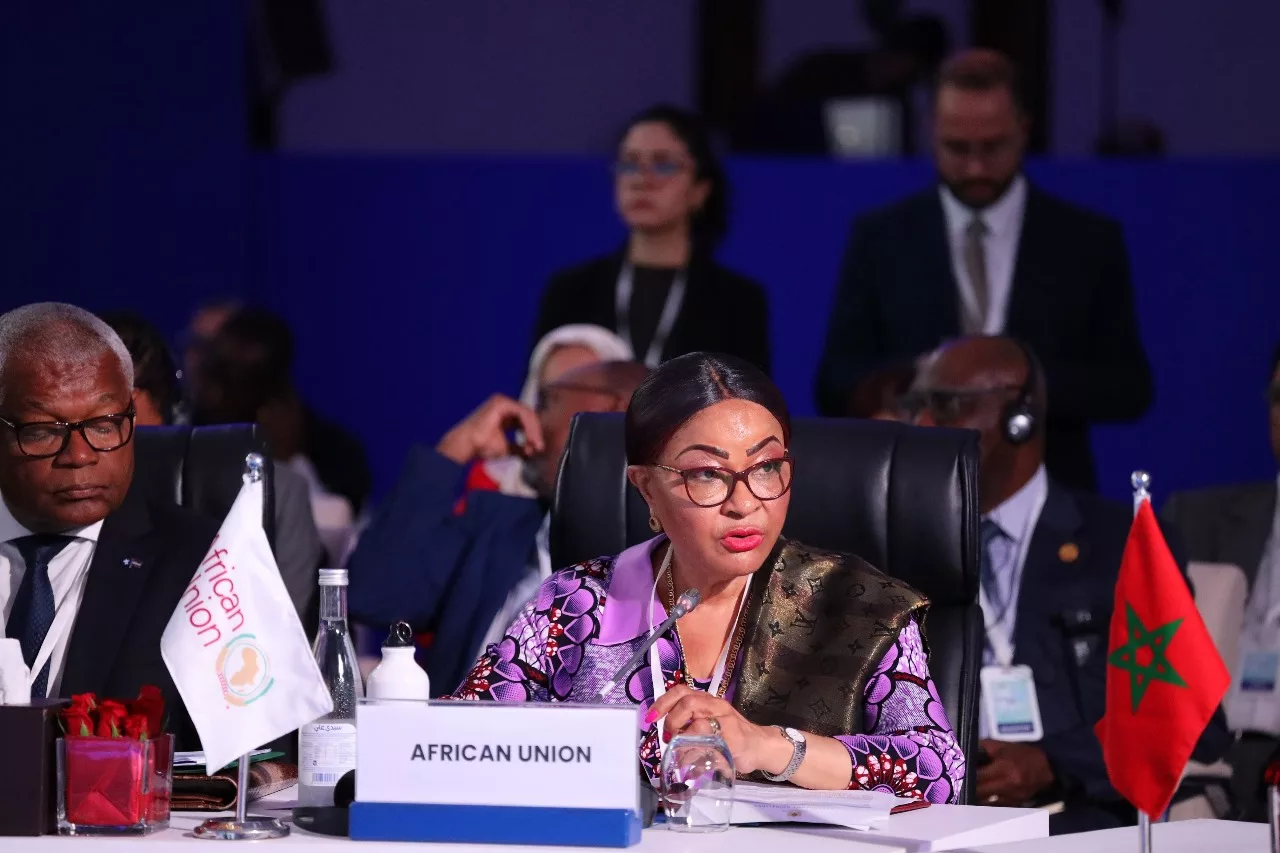|
Getting your Trinity Audio player ready...
|
African Union Commissioner of Agriculture, Rural Development, Blue Economy and Sustainable Environment, AmbassadorJosefa Correia Sacko, assured in Tangier (Morocco), that the health of the oceans is fundamental for global climate stability, biodiversity conservation, food security and the future of human beings.
The African diplomat, who was speaking at the African consultation event in preparation for the upcoming 3rd United Nations Conference on the Oceans in Nice, France, said that Agenda 2063, Africa’s development project, recognises the role of the ocean economy as a catalyst for Africa’s transformation.
According to her, this recognition is based on the richness of our oceans, seas, rivers, and lakes, which are teeming with biodiversity and contain reserves of oil, gas, and other minerals, and the connectivity provided by these bodies of water enables trade and communication between Africa and the rest of the world.
“Africa must play a leading role in the ocean economy. We must move away from net imports and from being the recipients of technology, to develop a high-income blue/ocean economy that will benefit not only our people but also the world,” she said.
Josefa Sacko emphasised that the AU does not want to be a mere participant in the global conversation on ocean-related issues, but rather a central player, because the stakes are too high for Africa to be anything less than a leading voice in these discussions.
The continent has more than 38 coastal countries, and six islands and is home to some of the world’s most critical marine and freshwater ecosystems, seas, and oceans, including the Atlantic, Indian, and Southern Oceans, as well as the Red and Mediterranean Seas.
However, Josefa Sacko assures that the oceans are seriously threatened by overfishing, pollution, land degradation, habitat destruction, and the recurring and imminent impacts of climate change.
“In our preparations for UNOC-3, we must be determined to present a united front to address these challenges, advocating for equitable and sustainable solutions that reflect our unique regional needs and aspirations,” she said.
About UNOC-3, under the theme “Accelerating action and mobilising all actors to conserve and sustainably use the ocean”, she stressed that Africa’s development agenda, as encapsulated in Agenda 2063 and the African Blue Economy Strategy, must remain central to these efforts.
She emphasised that the African Union Commission, in collaboration with African Member States, advocates for key priorities, namely strengthening regional and international partnerships, cooperation and coordination, strengthening African capacity in science, technology, and innovation, and promoting inclusive ocean governance and the blue economy.
This chapter ensures a mechanism for developing and implementing bankable investment projects for the oceans, such as blue finance, to tackle challenges such as marine pollution and climate change, among others, and promoting sustainable fisheries and aquaculture through centres of excellence in the field of fisheries and aquaculture, is part of Africa’s ocean strategy.






